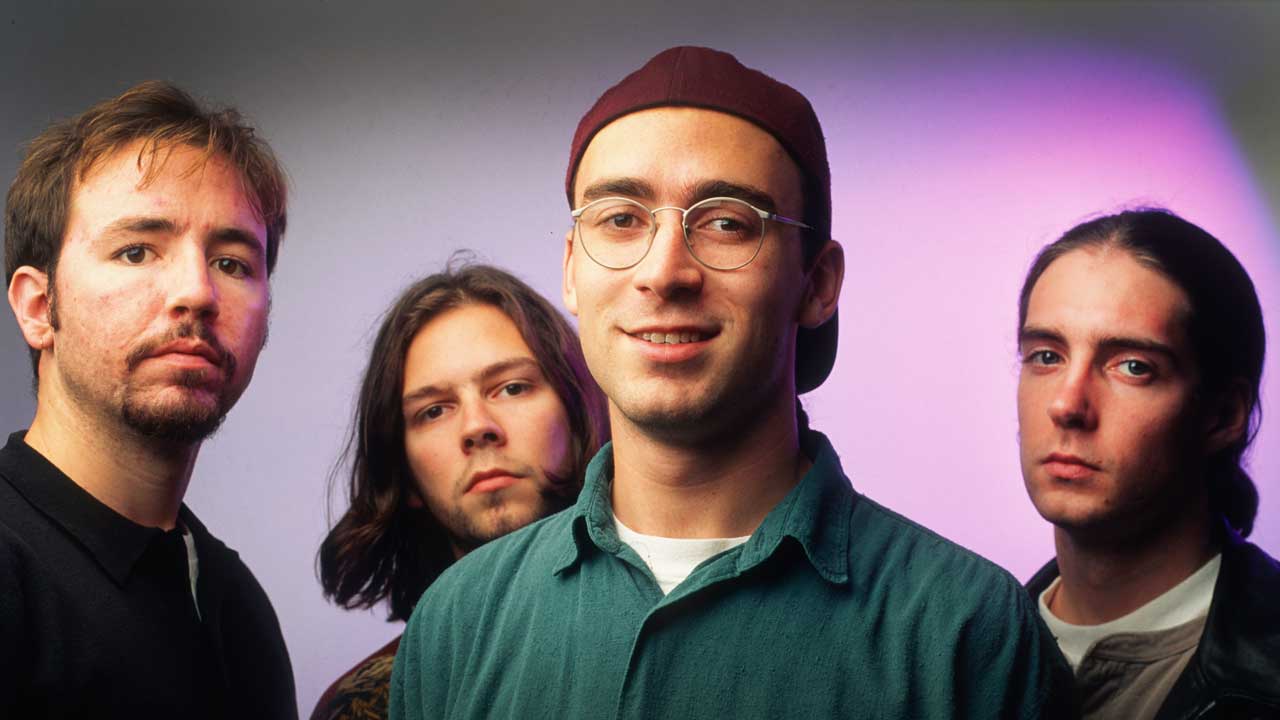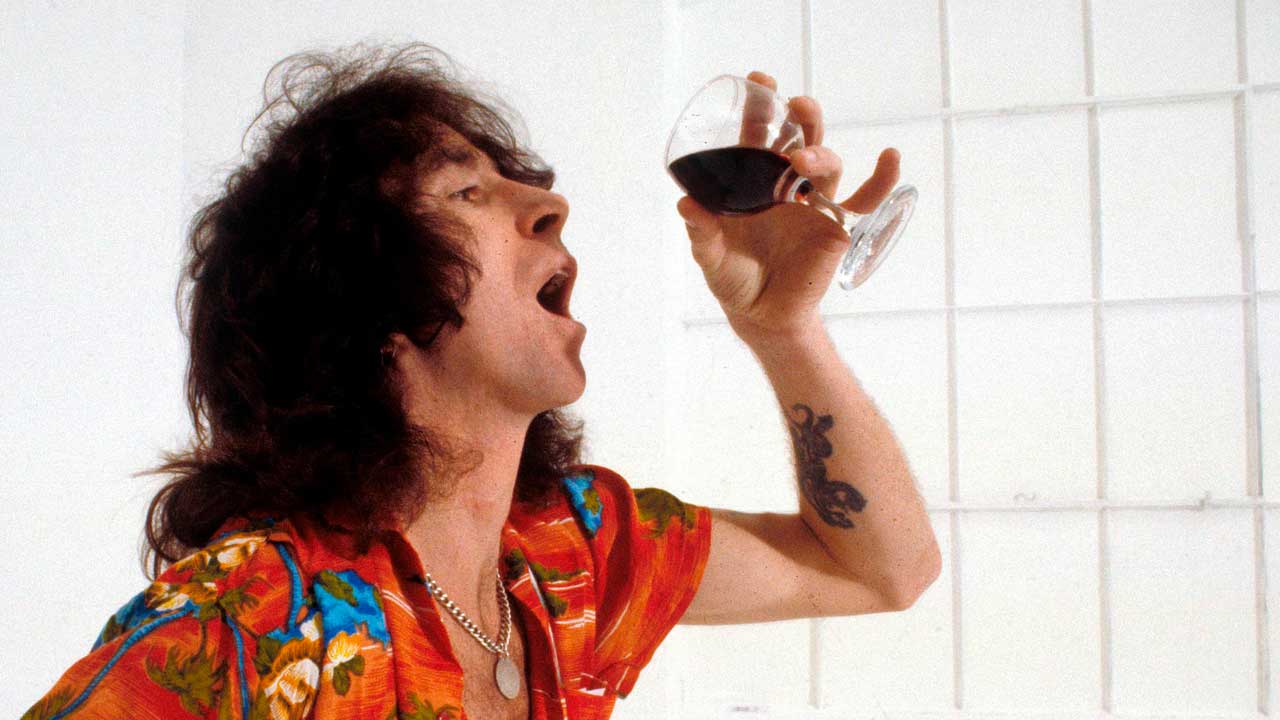I Alone by Live: "A million different interpretations later, it still means something to me"
Birth, death, love and loss… Live's post-grunge hit I Alone has soundtracked them all. Frontman Ed Kowalczyk remembers the song that was born in a barn

Select the newsletters you’d like to receive. Then, add your email to sign up.
You are now subscribed
Your newsletter sign-up was successful
Want to add more newsletters?

Every Friday
Louder
Louder’s weekly newsletter is jam-packed with the team’s personal highlights from the last seven days, including features, breaking news, reviews and tons of juicy exclusives from the world of alternative music.

Every Friday
Classic Rock
The Classic Rock newsletter is an essential read for the discerning rock fan. Every week we bring you the news, reviews and the very best features and interviews from our extensive archive. Written by rock fans for rock fans.

Every Friday
Metal Hammer
For the last four decades Metal Hammer has been the world’s greatest metal magazine. Created by metalheads for metalheads, ‘Hammer takes you behind the scenes, closer to the action, and nearer to the bands that you love the most.

Every Friday
Prog
The Prog newsletter brings you the very best of Prog Magazine and our website, every Friday. We'll deliver you the very latest news from the Prog universe, informative features and archive material from Prog’s impressive vault.
In the summer of 1994, MTV viewers turned on their sets to find a topless, shaven-headed lunatic pressed up against the screen. With dreamy chords washing around him, he gurns, pouts and moulds his face like putty. When the chorus lands, he bucks and punches like a saucer-eyed acid casualty.
It’s unlikely anyone would sign off on this video concept if Live’s I Alone was released today. But then, as band frontman Ed Kowalczyk tells it, the early 90s was the best time in history to have a hit single.
“There was a freedom to be wild and visceral,” he recalls. “The overriding feeling in the United States was bands doing exactly what they wanted – and doing their best work.”
Live’s arrival seemed impeccably timed, but they’d been around the block. The Pennsylvania band had marked themselves out from the grunge pack on 1991’s Mental Jewelry: an anthemic alt.rock debut that sailed just the right side of pretentious, with Kowalczyk mining the philosophies of Indian mystic Jiddu Krishnamurti. But it hadn’t made them rich.
“We were living in a van,” he recalls, “and when we were off the road I was still crashing at my mum’s house. When I wrote I Alone in 1992, I’d started living alone in this old barn with just a coal stove for heat. I remember exactly what it felt like sitting by that stove with an acoustic guitar, slipping into that chorus.”
Even in the relatively forgiving industry of the age, Kowalczyk knew that he had to deliver.
“We didn’t have the second record,” he says. “There was a big open space. Like they say, you spend the first 20 years of your life writing the first record, then you have to write the second in eight months. There was a crunch. I remember thinking: ‘What do I do now? Where does it go from here?’ It still felt new, but also kinda scary. That fear of the unknown.
Sign up below to get the latest from Classic Rock, plus exclusive special offers, direct to your inbox!
“Every time you sit down to write a song,” he continues, “somewhere in the back of your mind you have to be crazy enough to believe that you’re in it to win it, and have this naïve expectation that everyone on the planet is gonna hear it. I was pretty sure that I Alone would do well, but I had no idea we’d still be talking about it now. It was definitely a happy accident. I’m still mystified about how it happened. I’m just grateful that it did."
With its references to Eden and churchyards, plus the earworm chorus 'I alone love you/I alone tempt you', the lyric evoked a lovesick religious maniac.
“It’s hard to write about spirituality without it being corny,” Kowalczyk admits. “But that was a period in my life when I was questioning all the big issues. The lyric was like a montage of all these meaningful little phrases. I was creating a sense of intimacy, in this mystical environment, like a church, a temple, or even a secret garden. Everything built up to this sort of fever in the chorus, which was about the idea that there’s a singularity to love. It became known as this obsessive love song, but I was actually between relationships.”
Kowalczyk is happy to throw interpretation over to the fans. “I never tire of hearing all the different ceremonial usages of I Alone, from weddings, to kids being born, to funerals,” he says. “It’s impossible to misinterpret that song. People make it their own. I grew up as a fan of U2, REM, Peter Gabriel, and artists where I could sink my teeth into the lyric. When I hear Where The Streets Have No Name, I don’t really know what the song means, but I don’t care. It takes me somewhere and just makes spiritual sense to me. And that’s what I think I Alone does.”
While he insists that murky dreams of stardom were secondary to simply writing a great song, Kowalczyk recognised I Alone as a potential ticket to the big time.
“We didn’t have much money to record, so we only had a couple of weeks at Pachyderm Studio,” he recalls. “The first mixes weren’t great, and the record company wasn’t thrilled with how the overall record sounded. But then, at the end, Tom Lord-Alge came in and transformed the mix. I remember feeling like I had heard I Alone for the first time riding in my Honda with the finished MiniDisc. When that song came on, I thought, if this can see the light of day, this is a song that people will know me for."
“When I Alone came out it started to do well on radio,” he continues. “I remember playing a really raw version on Saturday Night Live when the audience were on fire. But it got to the point where the record company said, okay, we’ve done as much as we’re gonna do with it. That’s when the fans kicked in and kept it going and going.
Parent album Throwing Copper, also released in ’94, was initially a slow-burner, before the impact of I Alone drove it to No.1 and (eventually) eight million sales. Much of that was down to the heavy rotation of Tim Pope’s iconic video.
“I was taking my shirt off a lot in those days,” reflects Kowalczyk. “And the haircut was my idea – I had a nice little Fu Manchu [braid] going, which I kept for about a year until it became too hard to stop it looking disgusting. These days my daughters are like: ‘Dad you look so weird’. But I loved it.”
The best part of three decades on, the singer still hasn’t got fed up of his best-known song, even if he has reportedly fallen out with the rest of the band.
“I’m not sick of I Alone,” he insists. “I really do have warm feelings towards that song. It’s aged in a really fine way, and I still play it as a solo artist. It started on acoustic guitar, and it’s become the title and a mainstay of my solo acoustic tour, which seems so appropriate. A million different interpretations later, it still means something to me.”
Henry Yates has been a freelance journalist since 2002 and written about music for titles including The Guardian, The Telegraph, NME, Classic Rock, Guitarist, Total Guitar and Metal Hammer. He is the author of Walter Trout's official biography, Rescued From Reality, a music pundit on Times Radio and BBC TV, and an interviewer who has spoken to Brian May, Jimmy Page, Ozzy Osbourne, Ronnie Wood, Dave Grohl, Marilyn Manson, Kiefer Sutherland and many more.

